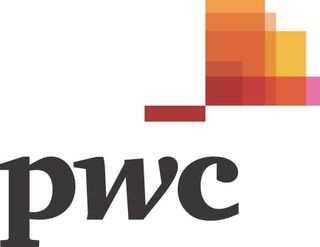PwC: Consumers Will Pay More for Better Experience

A new survey by research firm PricewaterhouseCoopers validates what many cable customer service executives have been saying for years – customers want a better experience and are willing to pay more for it.
According to PwC’s new "Future of Customer Experience" study, customers across a wide variety of industries said they were willing to pay as much as a 16% premium for better service. For cable service, respondents said they'd pay as much as a 9% premium for a “great customer experience.”
PwC surveyed a nationally representative sample of 4,000 U.S. respondents, from Gen Z to Baby Boomers, via an online survey and in-field interviews in December 2017; 11,000 respondents from 11 additional countries (Argentina, Australia, Brazil, Canada, China, Columbia, Germany, Japan, Mexico, Singapore, U.K.) were surveyed in January 2018.
Even as companies continue to automate customer service processes, consumers still crave the human touch – 74% of those surveyed in the PwC study said they wanted more human interaction, not less. And 64% of respondents said they felt companies have lost touch with the human element of the customer experience.
Whether consumers will actually pay a premium just for service, especially as over-the-top competitors have essentially gained share through lower prices, remains to be seen. Cable has gone down the premium-service-for-a-premium-price path in the past, only to find it wasn’t as important to customers as they had hoped.
In the meantime, many operators have invested time and money in improving the customer experience with shorter appointment windows, more reliable networks, and providing ways for consumers to contact service personnel and ask questions regarding their service though social media and other electronic avenues. Comcast alone in 2015 launched a $300 million effort to build new customer call centers, hire 5,500 new customer service reps and implement new technology to make the customer experience more friendly and efficient. Other operators have launched similar efforts over the years. And many OTT services have stressed their convenience, lack of long-term contracts and flexibility alongside their lower prices, which seems to be resonating with younger consumers.
“The ‘Experience Economy’ has ushered in a new B2C mindset, steering brands beyond emphasizing products and services to selling rich consumer experiences,” said PwC’s Global CxO and Experience Consulting Leader David Clarke in a statement.
Multichannel Newsletter
The smarter way to stay on top of the multichannel video marketplace. Sign up below.
But just putting a human face of the process isn’t enough. Companies have to work hard at making the experience fast, enjoyable and friendly. A bad experience, according to the survey, leads to customers dropping a service fast.
Globally, 60% of respondents said they would stop doing business with a company due to unfriendly service, 46% said unknowledgeable employees, and 50% said a lack of company trust would force them to sever the relationship. About 32% said they would walk away from a brand they love after a single bad experience.
Speed and efficiency are the cornerstones of the customer experience, according to PwC, with 52% of consumers surveyed saying they would pay more for greater speed and efficiency. About 43% would pay more for greater convenience; and 41% would pay more for knowledgeable and helpful employees. There’s also a willingness to give up personal data, especially among U.S. consumers: 63% say they’d share more information (location, age, lifestyle, preferences, and purchase history) with a company that offers a great experience.
“Brands won’t be able to solve their CX problems with technology alone – it’s just an enabler, facilitating the connection between a product or service and consumers,” Clarke said in the statement. “Instead, they must find a way to create an experience that blends consumer demand for tech with their strong desire for authentic, personal interaction. They don’t need to look far, though – employees hold the key to creating and sustaining great interactions with consumers.”
